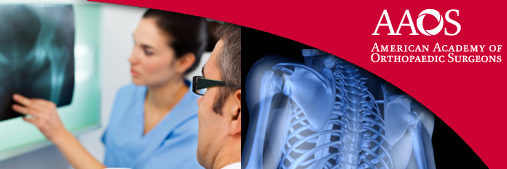The American Academy of Orthopedic Surgeons (AAOS) recently held its annual meeting in Chicago, Illinois from March 19 to 23, 2013. There were lectures on advances and changes in medical and surgical procedures, exhibits by pharmaceutical companies and device manufacturers as well as small group seminars. Here are three “hot” topics that emerged as being of exceptional current interest and importance to orthopedic surgeons.
The American Academy of Orthopedic Surgeons (AAOS) recently held its annual meeting in Chicago, Illinois from March 19 to 23, 2013. There were lectures on advances and changes in medical and surgical procedures, exhibits by pharmaceutical companies and device manufacturers as well as small group seminars. Here are three “hot” topics that emerged as being of exceptional current interest and importance to orthopedic surgeons.
Transition to an Accountable Care Organization (ACO).
An ACO is a group of health care providers, including primary care physicians, specialists and hospitals as well as insurers, who join together to provide cost-effective quality care to Medicare patients. Medicare offers several options for how an ACO program can be established.
The goal is to provide a high level of care while choosing wisely how the dollars are spent. The plan is to avoid duplication of services with emphasis being placed on avoiding errors. This new model of care will replace traditional fee-for-service billing with a pay-for-performance system.
There is some concern about how this will affect orthopedic surgeons. Many specialists are worried that an ACO will have too many similarities to an HMO. Specialists do not want to work in a system that requires pre-authorization for medical services by a non-medical administrator.
The AAOS plans on being very involved in the transition to ACOs. The Academy is committed to insuring that care for patients suffering from musculoskeletal problems will not be compromised.
Change to ICD-10 from the current ICD-9.
Beginning October 1, 2014, all medical billing for Medicare patients as well as for those who are privately insured, will have to be coded according to the ICD-10 format. Any claims submitted under the 30 year old ICD-9 will not be processed. There are more than eight times the number of ICD-10 codes than ICD-9. This change will have a significant impact on your practice’s workflow, efficiency and revenue cycle. You operations from front-desk, to clinical and billing will have to be trained and knowledgeable of the changes in order to have a smooth transition.
The new codes require more specificity concerning the care provided and will require increased documentation in regards to the examination, treatment. According to the AAOS, the transition affects orthopedics more than any other specialty. For example, some procedures that previously had one code, under ICD-10, will have three or more codes. Articles that will help in the transition to the new codes can be found here and here.
Patient Protection and Affordable Care Act (PPACA).
At the Chicago AAOS convention, the newly elected president of the Academy, Joshua J. Jacobs, spoke about the PPACA. Although it won’t be fully effective until January 1, 2014, Dr. Jacobs noted that the AAOS has always been committed to quality care and will meet the challenges of implementing health care reform under the PPACA.
There are changes under the PPACA effective in 2013 for orthopedic surgeons. A 2.3% excise tax is now imposed on orthopedic devices such as joint replacements. The tax is imposed on the revenues of manufacturers, not their profits. As a result, some manufacturers have been cutting back on their number of employees and making fewer devices. This in turn will make the devices that are available more expensive, a cost that may be passed on to the hospital, provider, insurance carrier and, eventually, the patient.
Another aspect of the PPACA is the number of people who will be covered by insurance will dramatically increase. This means that more patients with orthopedic issues may be seeking care. How well this care will be reimbursed is another issue which is yet to be determined. This may also affect the ability to see an Orthopaedic surgeon. Many are predicting doctor shortages and long waiting lists to schedule an appointment with a specialist.
